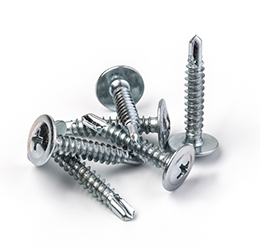
The solar industry continues to grow exponentially as the demand for renewable energy sources increases. Within this sector, custom fasteners play a crucial role in ensuring the efficient and reliable assembly of solar panels and supporting structures. This article delves into the various custom options available for fasteners, their applications, benefits, and the types of specialty fasteners used in the solar industry.
What are Custom Fasteners?
Custom fasteners are specially designed and manufactured to meet specific requirements in terms of size, material, strength, and resistance properties. Unlike standard fasteners, custom options allow for tailored solutions that address unique challenges in solar installations, such as environmental exposure, load requirements, and assembly efficiencies.
Customization Options
When creating custom fasteners for the solar industry, several options can be tailored to specific project needs:
- Material Selection: Depending on the environmental conditions, fasteners can be made from stainless steel for corrosion resistance, aluminum for lightweight properties, or galvanized steel for cost-effectiveness.
- Coatings and Finishes: To further enhance corrosion resistance and reduce wear, fasteners can be coated with protective finishes such as zinc, nickel, or chromium.
- Thread Design: Custom thread designs can be engineered to improve grip strength and ease of installation, which is vital for the secure mounting of solar panels.
- Head Styles: Different head styles can be developed to facilitate easier installation and to match the tools available on site, improving the speed and safety of the installation process.
Applications and Benefits
Custom fasteners are utilized extensively throughout the solar industry:
- Material Selection: Manufacturers can make fasteners from stainless steel for corrosion resistance, aluminum for lightweight properties, or galvanized steel for cost-effectiveness, depending on environmental conditions.
- Coatings and Finishes: Manufacturers can coat fasteners with protective finishes such as zinc, nickel, or chromium to enhance corrosion resistance and reduce wear.
- Thread Design: Engineers can custom design threads to improve grip strength and ease of installation, crucial for securely mounting solar panels.
- Head Styles: Developers can create different head styles to facilitate easier installation and match available tools on site, improving the speed and safety of the installation process
Specialty Fasteners in the Solar Industry
Specialty fasteners such as torque-limiting screws and captive fasteners are commonly used in solar applications to prevent over-tightening and to ensure panels remain securely attached even under dynamic environmental conditions. These fasteners are crucial for maintaining long-term reliability and performance of solar systems.
Conclusion
Custom fasteners represent a significant advancement in the solar industry, offering tailored solutions that enhance the efficiency, reliability, and cost-effectiveness of solar installations. By opting for custom-designed fasteners, solar project managers can overcome specific engineering challenges, improve installation speed, and ensure long-term durability against environmental stresses. As the solar industry continues to evolve, the integration of innovative fastening solutions like these will be pivotal in achieving the scalability and sustainability of solar energy systems.

